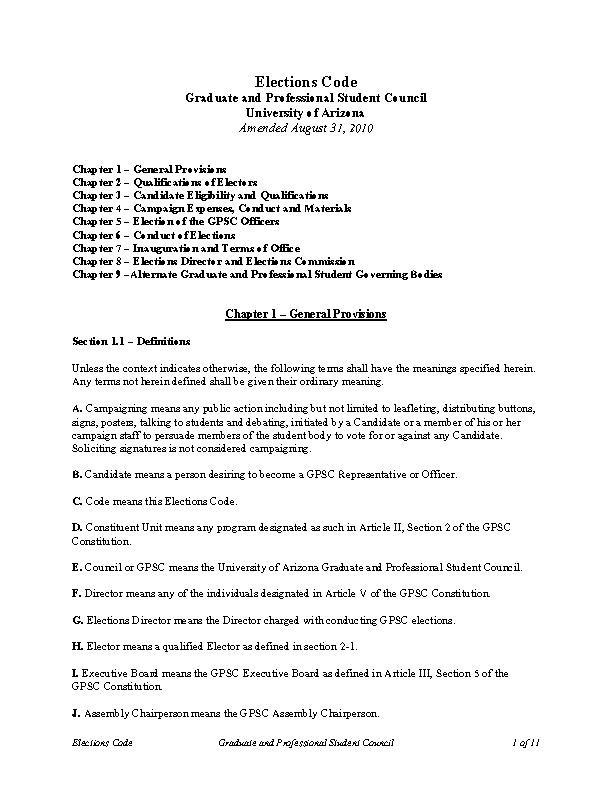As GPSC elections results went live on its website on Tuesday, potential election code violations that may have affected the results were brought to light Wednesday through a formal appeal by one of the presidential candidates.
At 10:54 p.m. on Tuesday, Edward Beck, one of the Graduate and Professional Student Council’s presidential candidates and a second-year public health graduate student, sent an email to the council’s executive board announcing his appeal due to “severe issues in how the GPSC elections were carried out.” In the email, he stated that the online voting ballot was open during times not advertised by those who oversaw the elections, and that voters were unable to write in candidates online during the first day of voting.
“These issues both should have been grounds for stopping the current elections and creating an entirely new one,” Beck said.
He told the council’s executive board he felt the elections process violated two major parts of the GPSC Elections Code. He cited Chapter 3 Section 6.2 of the code, which states that “all relevant election dates shall be set forth in the Elections Notification, as consistent with the GPSC Constitution” and Chapter 6 Section 3.F, which states “the ballot shall include space for a write-in candidate for each constituent unit and At-Large Representatives, respectively.”
Beck, the former GPSC presidential chief of staff, also served in the role of elections commissioner before resigning to run for president on March 26. On March 30, Georgia Perrian, a first-year medical student, volunteered to be the new commissioner for the remainder of the semester.
“As a director, I did it to the best of my ability working with a new system,” she said. “It was an election, people voted. There’s not a lot to be said about it really.”
Perrian said she told the candidates at an elections forum on April 18 that online polls would close at 11:58 p.m. on Friday, but could not discuss how some candidates misunderstood the poll’s closing time.
“Election times sort of model D2L assignments,” she said. “Because of traffic jams, teachers tell you to submit it (assignments) by 10 instead of midnight. It’s a preventative measure.”
Although Perrian said that even though voters were unable to write in candidates during the first day of elections on April 16, she does not believe it affected any of the results.
“It was a technical overlap from the previous election. It didn’t reset or affect any elections,” she said.
Zachary Brooks, a second-year graduate student studying language acquisition and teaching who won the presidential election by eight votes, said he considers himself to be president, and will until told otherwise.
“He (Beck) is entitled to his process,” he said. “If we have to run again, so be it. Until then, I’m president and I will proceed as so.”
Beck, who said he thought the elections closed at 11 p.m. on Friday, said Brooks knew they actually closed at 11:58 p.m. and even advertised this on his personal Facebook page. Brooks said the last thing he posted on his Facebook regarding the elections was at 3 p.m. on Friday and simply shared the link of the voting site.
Both said they thought the elections closed at 11 p.m. on Friday, not at 11:58.
“I thought the elections closed at 11 on Friday and went with the official word,” Brooks said. “I’m just trying to keep myself away from all this (the appeal process).”
Brooks also said he didn’t notice that voters were unable to write in candidates during the first day of elections. Before the election started, he said, he and other candidates were able to test out the election’s website to see if everything worked. He did not notice anything awry then, either.
“As far as I know, everything is fine,” he said. “I trust the process is a good one. Why would I trust anything else?”
The GPSC executive board heard Beck’s appeal on Wednesday, and Perrian said she could not confirm or deny whether elections would have to be redone. The GPSC Elections Code does not place a limit on how long the board has to make such a decision.
“It’s not a personal vendetta or a question of the abilities of any elected officials,” Beck said. “However, to maintain a democratic organization, you have to maintain transparency.”









